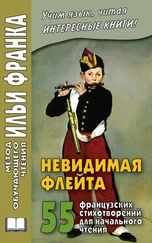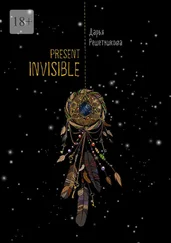Lene Kaaberbol - Invisible Murder
Здесь есть возможность читать онлайн «Lene Kaaberbol - Invisible Murder» весь текст электронной книги совершенно бесплатно (целиком полную версию без сокращений). В некоторых случаях можно слушать аудио, скачать через торрент в формате fb2 и присутствует краткое содержание. Год выпуска: 2012, ISBN: 2012, Издательство: Soho Crime, Жанр: Старинная литература, на английском языке. Описание произведения, (предисловие) а так же отзывы посетителей доступны на портале библиотеки ЛибКат.
- Название:Invisible Murder
- Автор:
- Издательство:Soho Crime
- Жанр:
- Год:2012
- ISBN:9781616951719
- Рейтинг книги:5 / 5. Голосов: 1
-
Избранное:Добавить в избранное
- Отзывы:
-
Ваша оценка:
- 100
- 1
- 2
- 3
- 4
- 5
Invisible Murder: краткое содержание, описание и аннотация
Предлагаем к чтению аннотацию, описание, краткое содержание или предисловие (зависит от того, что написал сам автор книги «Invisible Murder»). Если вы не нашли необходимую информацию о книге — напишите в комментариях, мы постараемся отыскать её.
Invisible Murder — читать онлайн бесплатно полную книгу (весь текст) целиком
Ниже представлен текст книги, разбитый по страницам. Система сохранения места последней прочитанной страницы, позволяет с удобством читать онлайн бесплатно книгу «Invisible Murder», без необходимости каждый раз заново искать на чём Вы остановились. Поставьте закладку, и сможете в любой момент перейти на страницу, на которой закончили чтение.
Интервал:
Закладка:
Now Rina finally nodded, but Nina had trouble deciding if that was because she understood what Nina was saying or if she just wanted to be done with this conversation. The girl pulled back on the sofa, reached for one of the Barbie dolls, and started dressing the doll with her clumsy fingers.
“Okay,” Rina said. “That’s okay.”
T HERE WASN’T MUCHgoing on in the camp this late in the afternoon. Most of the full-time staff were on their way home and would soon abandon the Coal-House Camp’s six hundred resident souls to their own personal darkness. A small group of men and women were queuing outside Admin, waiting to pick up meal vouchers for dinner, and from the family units on the other side of the former parade ground came the quiet hum of voices and the muffled cries of children. While the days at the camp were strangely stagnant and sleepy, the nights were filled with a wary restlessness. Dinner was served at 6 P.M., and after that the doors to the office were locked. The employees returned to civilization. Only a few nighttime guards remained to patrol the hallways and make sure the Pakistanis, Indians, and Iraqis didn’t kill each other overnight. The few single women hid, and families with children withdrew to their rooms behind locked doors with their TVs on loud enough to drown out the drunken cries of young men and their neighbors’ incessant haranguing and bickering.
In the afternoon, people waited for night.
Nina looked at her watch. 4:04 P.M. She just had time to stop by the clinic. She asked the carer on duty to be a little extra attentive to Rina, knowing full well that the other children housed in the children’s unit weren’t in much better shape. Then she quickly walked across the grounds and up the flagstone path to Ellen’s Place, the old, brick wing that housed the clinic and infirmary.
From the state of the waiting room, it was painfully clear that her and Magnus’s absence during the week-long trial had left gaps in the clinic’s defenses against chaos. Marie and Berit, the secretary and the other nurse, were both capable people, but running things on their own was an uphill job. Clearing away magazines, candy wrappers, and other debris came a poor second to registering complaints, monitoring sore throats and distressed mental states, and generally stemming the incoming tide of would-be patients, many of whom still had to leave dissatisfied because “the Doctor”—Magnus—wasn’t there to see them.
The door to the clinic itself was locked, so both Berit and Marie must have left already. There was a yellow Post-it note on the doorframe, written in a hurried, nearly illegible scrawl that didn’t seem to belong to either of them. Nina peered at the jumbled letters. It would seem that the family in Room 42 had asked for a doctor or a nurse to stop by.
She checked her watch again. 4:07 P.M. She had promised to buy Anton new soccer shoes on the way home. But if she scrapped any idea of catching up on her paperwork today, she could just fit in this one visit. She remembered Room 42 quite clearly. The family had arrived from Iran three months ago—the mother was a doctor herself, but at the Coal-House Camp that meant nothing. The past was erased, along with any pretense at skill, confidence, and independence. Nina had seen it happen many times before. Eventually, people could barely tie their own shoelaces.
The door to Room 42 was already ajar when she got there. A loud game show was flickering from the farthest corner of the dark room. Two pre-teens were glued to the screen, but the mother was sitting on the edge of the family’s bed, stroking her husband’s forehead. She looked up with a worried frown when she saw Nina standing in the doorway.
“Headache again,” she said, pointing at her husband who was lying down with his eyes closed, panting dramatically. “I think maybe meningitis.”
Nina pulled a chair over next to the husband and placed a hand on his forehead. Still no fever. The man’s wife had also summoned her the week before. That time she thought it was a brain tumor, but Magnus had said it was more likely a migraine.
Nina shook her head and cautiously took the woman’s hand. “It’s nothing serious. Please, don’t worry.”
The woman shook her head skeptically.
“Do you have the pills the doctor gave you? Did you take them?” Nina asked.
“Yes,” the man mumbled despondently. “I take them.”
Nina sat there for a bit. She could get a new job, she thought suddenly. A job that didn’t make her feel the way she felt right now. Mortal fear. That was what was wrong with him. Chronic anxiety that was turning into permanent state of panic. How could she be expected to treat that with a few platitudes and a couple of aspirins? It was wrong. No, it was more than wrong—it was reprehensible.
Nina forced a reassuring smile. “See you tomorrow, okay? Don’t worry. Everything is just fine.”
The woman didn’t respond, and Nina knew perfectly well why not. Her husband probably didn’t have meningitis, but apart from that, nothing was fine, or even remotely okay. While Nina went to buy soccer shoes for her son, night would soon be falling over the Coal-House Camp.
Nina tilted her head in a nod and shut the door a little too firmly behind her as she left.
 HEN THEY ASKEDto be driven to Tavaszmezö Street in Budapest’s Eighth District, the cab driver locked all the doors. Sándor could clearly hear the click, and he noticed the look the driver flashed him in the rearview mirror—questioning, sizing him up. Good thing Lujza was with him. In spite of her penchant for weird shawls and flea-market finds—Boho chic, she called it—there was a down-to-earth, Hungarian middle-class respectability in her mousy-haired genes and sit-up-straight manners. For his part, even though he tied a perfect knot in his tie, polished his shoes, and ironed his shirts immaculately, somehow there would always be a question mark hanging over him: the doubt that he saw in the cab driver’s eyes.
HEN THEY ASKEDto be driven to Tavaszmezö Street in Budapest’s Eighth District, the cab driver locked all the doors. Sándor could clearly hear the click, and he noticed the look the driver flashed him in the rearview mirror—questioning, sizing him up. Good thing Lujza was with him. In spite of her penchant for weird shawls and flea-market finds—Boho chic, she called it—there was a down-to-earth, Hungarian middle-class respectability in her mousy-haired genes and sit-up-straight manners. For his part, even though he tied a perfect knot in his tie, polished his shoes, and ironed his shirts immaculately, somehow there would always be a question mark hanging over him: the doubt that he saw in the cab driver’s eyes.
“Good thing you’re here,” he said aloud. But on the other hand, if it hadn’t been for her, he wouldn’t be sitting here. He never took cabs.
She looked at him in surprise—probably hadn’t even noticed the doors being locked and the driver’s suspicious looks.
“Why?” she asked.
He gave up without explaining. “It’s just nice,” he said.
She smiled, taking that as another compliment. “You’re sweet,” she said, kissing him on the cheek.
They had been to a baptism—Lujza’s elder sister’s little boy, her parents’ first grandchild.
It was also the first time Sándor officially met the Szabó family. His nerves were still on edge, although it now felt more like fatigue than the tense stiffness he had experienced on the way there. He wanted to ask Lujza if it had gone okay, but he already knew the answer. It hadn’t. Everyone had been pleasant enough, even friendly. Mr. Szabó had greeted him with a firm handshake and had chatted with him about his studies, about his upcoming exams and about what specialty he was going to choose—Lujza’s father was a lawyer himself and had given criminal law an enthusiastic plug. Mrs. Szabó had been far too preoccupied with her small, screaming, tulle-bundled heir to pay much attention to him, but she had given him an absent-minded smile when he was introduced to her. There was nothing wrong with the way he had been received; it was more his own performance he was dissatisfied with. He had felt his facial muscles freeze, fossilizing with every passing hour. And as so often happened when he felt that way, his voice dropped to a scarcely audible mumble, forcing his conversation partner to lean in and say, “Sorry …?” every other sentence.
Читать дальшеИнтервал:
Закладка:
Похожие книги на «Invisible Murder»
Представляем Вашему вниманию похожие книги на «Invisible Murder» списком для выбора. Мы отобрали схожую по названию и смыслу литературу в надежде предоставить читателям больше вариантов отыскать новые, интересные, ещё непрочитанные произведения.
Обсуждение, отзывы о книге «Invisible Murder» и просто собственные мнения читателей. Оставьте ваши комментарии, напишите, что Вы думаете о произведении, его смысле или главных героях. Укажите что конкретно понравилось, а что нет, и почему Вы так считаете.












